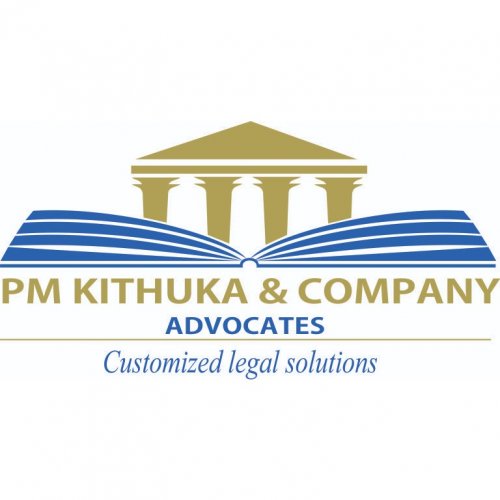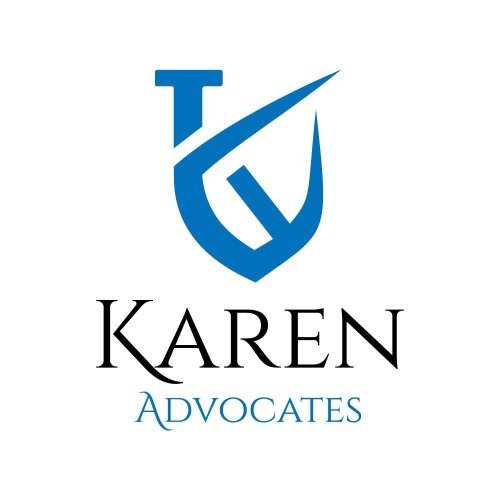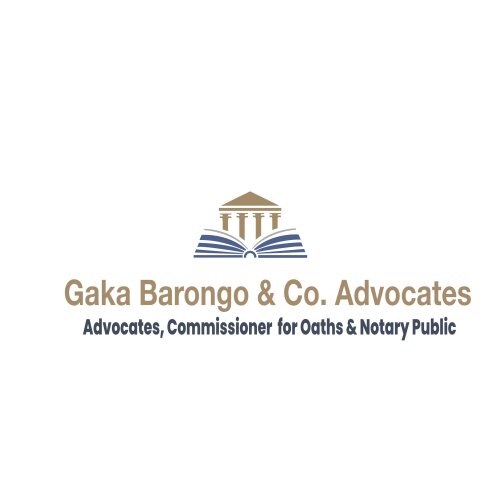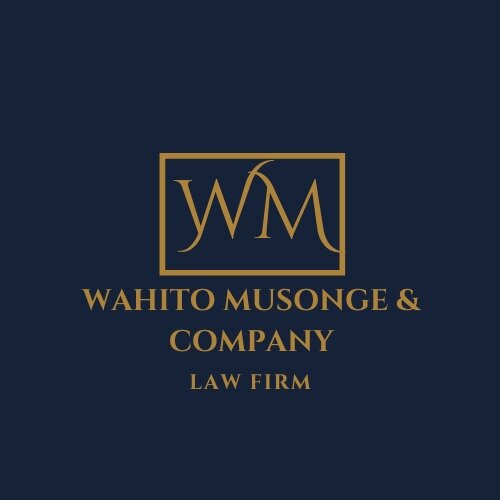Best Defamation Lawyers in Kenya
Share your needs with us, get contacted by law firms.
Free. Takes 2 min.
Or refine your search by selecting a city:
List of the best lawyers in Kenya
Kenya Defamation Legal Questions answered by Lawyers
Browse our 2 legal questions about Defamation in Kenya and read the lawyer answers, or ask your own questions for free.
- Forced divorce
- I got married to someone who never loved me but got married to me just for the sake of her parent's happiness and after 12 yrs she forcefully divorced me coz before my marriage she had an affair with someone then after 12 yrs she defamed my name her lover... Read more →
-
Lawyer answer by Mwale Law Advocates LLP
Hello, Such matters tend to be difficult to navigate. Fortunately you can lean on our legal expertise to aid you along the way. Where the divorce proceedings are concluded, no further action is necessary. Regarding the defamation, you would need...
Read full answer - Civil defamation
- Was copied in an email claiming that I had promised a certain organization tender to supply a motorbike to my place of work and that I later on short-changed the client. this email was sent to my employer and all colleagues and I haven't engaged anyone in a tender process.... Read more →
-
Lawyer answer by Rana Fazal Muhammad Law Associates
You should issue a legal notice to this organization or file a defamation claim against them in the civil court.
Read full answer
About Defamation Law in Kenya
Defamation in Kenya is governed by both statutory and common law principles. Defamation law seeks to protect individuals and entities from false statements that may damage their reputation. The main legislative provision dealing with defamation in Kenya is the Defamation Act. Defamation can be categorized into two types: libel, which is defamation in written or published form, and slander, which is spoken defamation. The law aims to strike a balance between protecting the freedom of expression and safeguarding individuals' reputational rights.
Why You May Need a Lawyer
There are several situations where you might need legal assistance for defamation issues in Kenya:
- You've been accused of making defamatory statements and need to defend yourself.
- You believe you are a victim of defamation and wish to pursue a claim to seek damages.
- You are uncertain whether a statement qualifies as defamation and want legal advice.
- You are a public figure or operate an entity that frequently interacts with media and require ongoing legal counsel.
- You are involved in online activities and concerned about potential defamation issues in digital content.
Local Laws Overview
The key aspects of defamation law in Kenya include:
- The Defamation Act: Defines defamation and the legal framework for claims.
- Burden of Proof: The plaintiff must prove that the defendant made a defamatory statement, it was published, it referred to the plaintiff, and it was false.
- Defenses: Common defenses include truth, fair comment, and privilege. If the defendant can prove the statement is true, this can be a complete defense.
- Remedies: A successful claimant can seek damages, an apology, or injunctive relief to prevent further publication.
- Digital Defamation: Online defamation is treated similarly, with specific challenges related to jurisdiction and anonymity of the publisher being notable issues.
Frequently Asked Questions
What is the difference between libel and slander?
Libel refers to written or published defamatory statements, while slander is spoken defamation.
Can truth be a defense in defamation cases?
Yes, if the defendant can prove that the statement is true, it can be used as a complete defense against defamation claims.
What are the potential outcomes of a defamation lawsuit?
Possible outcomes include monetary compensation, a public apology, or an injunction to stop further publication of the defamatory content.
Is online defamation treated differently in Kenya?
Online defamation is subject to the same laws but involves unique challenges such as anonymity and jurisdiction. Specialized legal knowledge may be required.
Can public figures claim defamation?
Yes, however, public figures often need to prove actual malice or reckless disregard for the truth due to their higher public profile.
What is considered a defamatory statement?
A statement that damages a person's reputation, exposing them to hatred, contempt, or ridicule, or causing them to be shunned or avoided.
How long do I have to file a defamation claim?
In Kenya, defamation claims must typically be filed within a year from the date the statement was made or published.
Does the right to free speech protect against defamation claims?
The right to free speech is protected, but it does not extend to making false statements that harm others' reputations.
Do I need to prove financial loss in a defamation case?
In cases of libel, you do not need to prove financial loss. In slander cases, however, you typically must prove specific damages.
What can I do if I'm wrongly accused of defamation?
It is important to consult with a lawyer who can help you understand your rights and build a defense based on truth, privilege, or fair comment.
Additional Resources
For legal assistance in defamation matters, you may consider reaching out to the following resources in Kenya:
- Law Society of Kenya
- Kenya Human Rights Commission
- Judiciary of Kenya's official website for legal precedents
- Legal aid clinics affiliated with universities
Next Steps
If you require legal assistance for a defamation issue, consider taking the following steps:
- Document all evidence related to the defamatory statement, including publications, communications, and any resultant impact on your reputation or financial situation.
- Consult with a lawyer specializing in defamation to understand your rights and potential legal strategies.
- Engage in discussion or mediation to potentially resolve the issue out of court, if appropriate.
- If necessary, instruct your lawyer to file a defamation claim in court and represent you in proceedings.
Lawzana helps you find the best lawyers and law firms in Kenya through a curated and pre-screened list of qualified legal professionals. Our platform offers rankings and detailed profiles of attorneys and law firms, allowing you to compare based on practice areas, including Defamation, experience, and client feedback.
Each profile includes a description of the firm's areas of practice, client reviews, team members and partners, year of establishment, spoken languages, office locations, contact information, social media presence, and any published articles or resources. Most firms on our platform speak English and are experienced in both local and international legal matters.
Get a quote from top-rated law firms in Kenya — quickly, securely, and without unnecessary hassle.
Disclaimer:
The information provided on this page is for general informational purposes only and does not constitute legal advice. While we strive to ensure the accuracy and relevance of the content, legal information may change over time, and interpretations of the law can vary. You should always consult with a qualified legal professional for advice specific to your situation.
We disclaim all liability for actions taken or not taken based on the content of this page. If you believe any information is incorrect or outdated, please contact us, and we will review and update it where appropriate.
Browse defamation law firms by city in Kenya
Refine your search by selecting a city.













